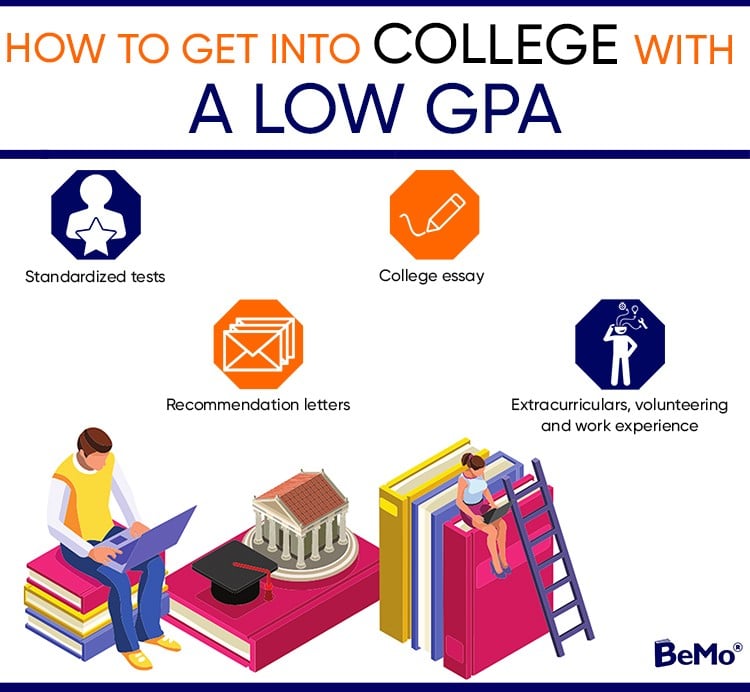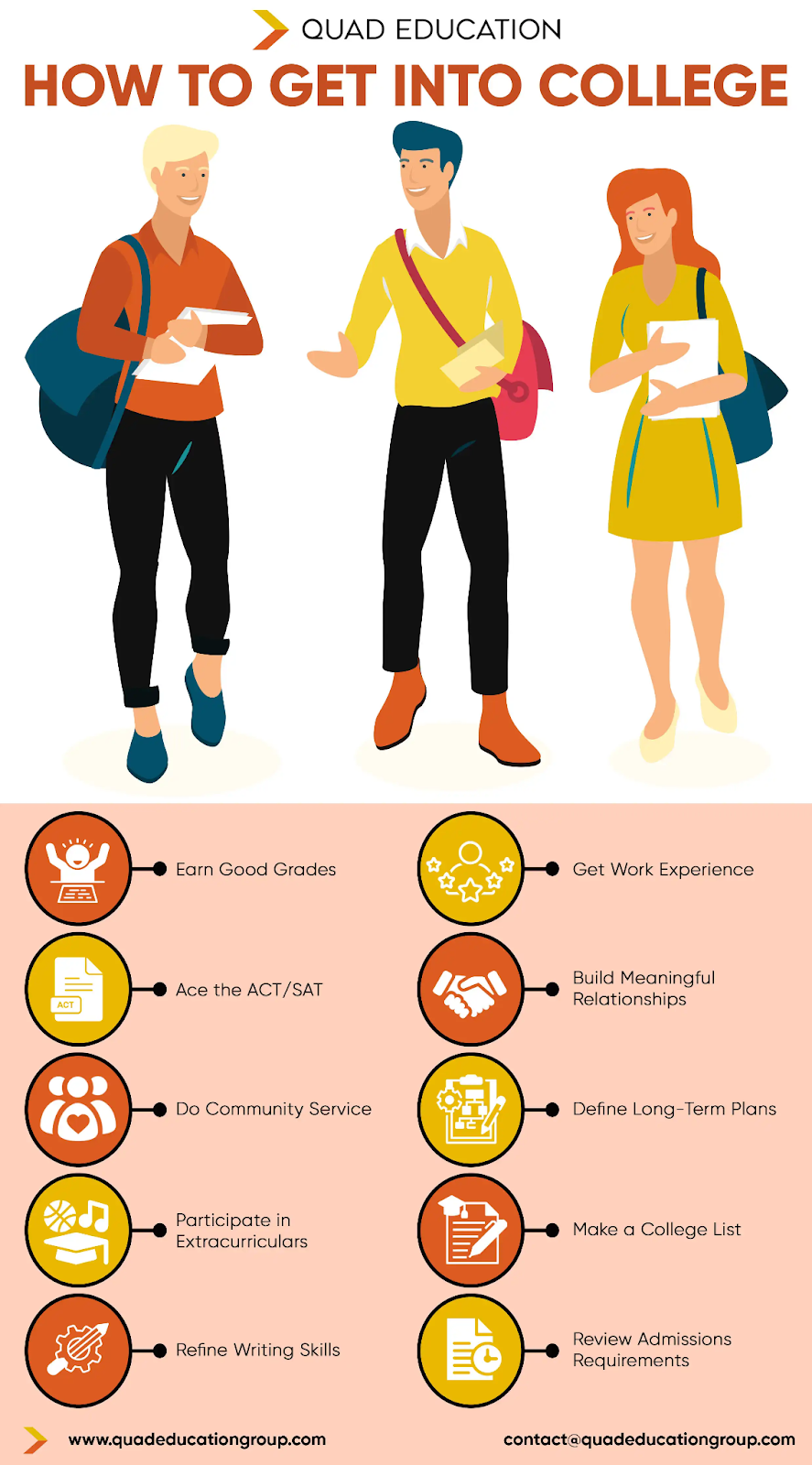“`html
Essential Guide to How to Get Into College: Proven Tips for 2025 Success


Understanding the College Application Process
The journey of how to get into college begins with a clear understanding of the college application process. This crucial process involves several steps, beginning with selecting the right colleges based on personal fit, academic strengths, and career aspirations. Students are encouraged to research college entrance requirements, which often include SAT or ACT scores, GPA standards, and specific course prerequisites. Thorough knowledge about these requirements can streamline the university application journey significantly and minimize the potential for oversights. Additionally, engaging with college admission counselors and attending college fairs are excellent ways to gather essential information and clarify any uncertainties regarding the application journey.
Steps to Prepare for Your College Applications
To prepare effectively for applying to college, start by building a timeline of important dates, including college application deadlines. Students should take the initiative to draft detailed college application essays that reflect their unique voice and aspirations. It’s essential to brainstorm experiences that highlight skills relevant to their chosen majors and personal growth through education. Crafting an engaging personal statement acts as a pivotal component of the application, helping admissions committees gain insight into an applicant’s character and determination. One effective strategy involves drafting several outlines and seeking feedback from mentors or teachers before finalizing a cohesive essay.
Documenting Your Accomplishments
Building a solid college resume is a strategy that greatly enhances any application. This should highlight extracurricular activities that matter to the admissions committee, including volunteer work, internships, and leadership roles within the community. Creating a portfolio that combines oral and written achievements, along with awards received, also solidifies your case. Admissions officers clearly appreciate applicants who demonstrate a commitment to personal interests while also balancing academics and community dedication.
Financial Planning for College
Understanding financial aid for college is an essential aspect of the college application process. Students must familiarize themselves with various funding options, including scholarships, grants, and student loans. It’s advisable to apply early for financial aid to discover available options that can lighten the financial load. Various academic bodies and online resources provide lists of the best scholarships for college students tailored to individual skills and backgrounds. Additionally, creating a college savings plan can lessen the burden on students and their families.
Applying for Scholarships
Identifying merit-based college scholarships advice equips students with the knowledge needed to obtain financial support for their education. Students should begin applying for scholarships as early as their freshman year of high school. Establishing a well-organized list of potential scholarships along with their respective deadlines can help keep students on track. In addition to academic excellence, remember to highlight any unique experiences that can differentiate you from other applicants. Schools often reward originality and determination.
Navigating Student Loans
Understanding student loans can tremendously help students make informed financial decisions. There are various loan options, including federal and private loans. Researching the terms of each loan, possible deferment periods, and interest rates is crucial. Moreover, students can speak with college admission counselors about upcoming changes in policies that may affect borrowing and financial outlook as well.
Preparing for College Entrance Exams
Preparing for college entrance exams such as the SAT or ACT is paramount in enhancing college acceptance chances. Creating and adhering to a study timetable can help aspiring students stay focused and organized. Targeted practice exams and online preparation courses can be beneficial tools. Improving scores takes discipline and time, and students should consider dividing their study sessions into manageable blocks.
Key Strategies for Test Preparation
Effective strategies for mastering standardized tests for college entry include utilizing various learning methods, such as collaboration with peers or utilizing online resources for test preparation. Forming study groups can foster accountability and provide various perspectives on challenging topics. Keeping track of personal progress through practice tests helps in recognizing areas that need additional focus.
Test-Taking Techniques
Learning effective test-taking techniques lays the groundwork for success during high-pressure testing situations. Techniques such as identifying and following a time strategy for sections of the test, practicing anxiety reduction methods, and ensuring adequate rest before test day can improve performance. Prepare for potential distractions pace yourself throughout the exam, and maintain focus on the questions at hand.
Submitting Unique College Applications
When it comes to the college application essays and overall submissions, crafting a distinctive narrative is vital. Admissions committees are looking for evidence of personality traits and experiences that contribute to a diverse campus environment. Applicants are encouraged to delve deep into self-assessment and actualize their individual values and experiences in the narratives presented.
Differentiating Your Application
In a competitive landscape, differentiating your college application through showcasing compelling personal stories is invaluable. Provide unique insights into your background, challenges faced, and lessons learned, perhaps in a relatable manner. Using captivating language will not only engage the reader but also leave a lasting impact, improving your chances of acceptance significantly.
Understanding the Role of Recommendation Letters
Writing college recommendation letters from teachers, mentors, or professionals who know your strengths can provide vital support to your application. Selecting appropriate recommenders who understand both your academic and professional prowess allow your authentic skills and achievements to shine. Including a brief note for recommenders outlining critical points to address can also enable them to write personalized letters.
Key Takeaways
- Understand the college application process and requirements early on.
- Effectively prepare for entrance exams and maintain a strong GPA.
- Research financial aid options and apply for scholarships diligently.
- Craft unique and impactful personal statements and application essays.
- Build connections with college admission counselors and utilize available resources.
FAQ
1. What are the most important factors in the college selection process?
Critical factors in college selection include academic programs offered, campus culture, location, financial aid availability, and overall fit for personal needs. Proximity to home, campus diversity, and extracurricular opportunities are also essential. It’s beneficial to create a prioritized list of what aspects are most important to you when choosing a college.
2. How can I improve my SAT/ACT scores effectively?
To improve SAT/ACT scores, utilize practice tests, consider structured study schedules, and seek help from peer groups or tutors. Focus on understanding the test format, content areas, and pacing strategies. Analyzing weaker sections will help allocate more focus where necessary, ultimately leading to score improvement.
3. What should I include in my college resume?
Your college resume should summarize academic achievements, extracurricular involvements, leadership experiences, and any volunteer work. Highlight important awards and skills relevant to your college goals. It’s crucial to present this information clearly and concisely, making it easy for admissions officers to evaluate your experiences.
4. What role do community service experiences play in college applications?
Engagement in community service is often viewed positively by college admission officers. It demonstrates commitment to social responsibility, personal interests, and leadership capabilities. It can set you apart from other applicants as well, indicating a genuine desire to make a positive impact.
5. How do I leverage my extracurricular activities on my application?
Leveraging extracurricular activities in your application involves demonstrating how these activities have modeled your skills, interests, and commitment. Highlight roles where you had leadership or lasting impact, discussing what you learned and how these experiences shape your college aspirations. Specific examples will strengthen your application narrative.
“`
